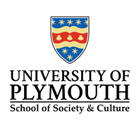Plymouth Law Review
Document Type
Graduate Article
Abstract
Spanning over time and nations, this article explores the censorship of literature over three main themes: censorship through a religious lens, the censorship of journalism, and censorship in schools. By delving into a case study for Permual Murugan’s One Part Woman and Salman Rushdie’s The Satanic Verses and analysing Hindu and Islamic approaches to censorship and the extremities they will go to to censor, Eastern religious tolerance of free speech and unorthodox views is exposed. Further, it explores the freedom for journalists, particularly in Islamic countries where said freedom is restricted, and the threat that censorship has on democracy. It offers nuanced reflections on legal ramifications, or lack thereof, for journalistic integrity in certain countries. Additionally, by comparing Republican American states, such as Florida, to Democratic states and countries, such as Sweden, varying approaches to censoring literature for students are analysed as well as the impact that censorship has on educational development and marginalised communities. It examines the role of technology in bypassing censorship and its implications for access to diverse content, providing strategic recommendations for fostering a more inclusive literary landscape in alignment with legal principles. By traversing these diverse dimensions of censorship, this article aims to contribute to a nuanced understanding of the complexities inherent in regulating literary expression. It concerns the intersectionality of censorship across religious, journalistic, and educational domains, emphasising the urgent need for further scholarly inquiry and action in this evolving field of law
Publication Date
2024-01-01
Publication Title
The Plymouth Law Review
Volume
17
Issue
1
First Page
186
Last Page
219
ISSN
2054-149X
Recommended Citation
Whetnall, Emma
(2024)
"A comparative study of censorship law and policy in relation to
literature and journalism,"
Plymouth Law Review: Vol. 17, Article 4.
Available at:
https://pearl.plymouth.ac.uk/plr/vol17/iss1/4


